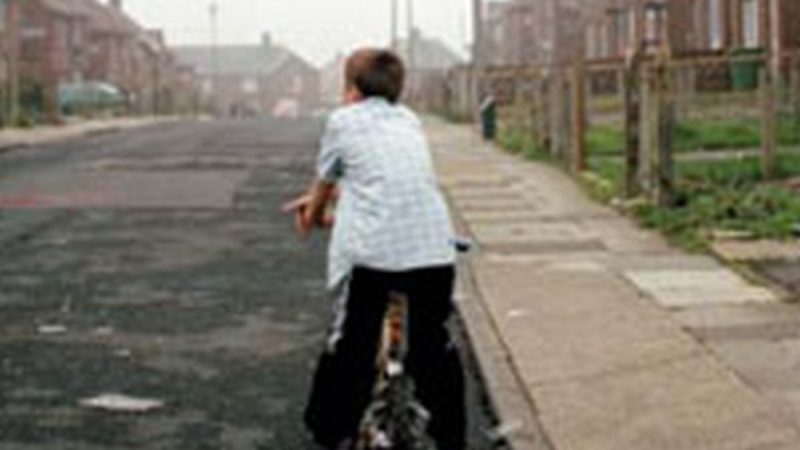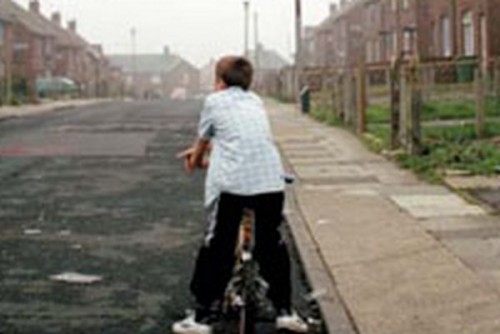

January is not just a time for sober reflection; it is also a time for clarity and determination, renewal and ambition. Though many resolutions fall by the wayside, others are worth keeping. I believe that in 2018 there should be a new resolve to tackle child poverty and begin to fulfil more of our nation’s potential.
The Institute of Fiscal Studies forecasts that by 2022 there will be 5.2 million children living in poverty – nine children in every class of 30. Some 128,000 children are homeless, and a further 1.6 million are living in over-crowded, temporary, and run-down housing. These statistics are frightening and the reason for them is clear. Despite being an essential institution, the welfare state is too often seen as an unwanted burden.
Instead of being respected as a vital safety net that allows families to recover from life’s setbacks, the welfare state is branded as a refuge for “scroungers” and the “undeserving poor”. This attitude is hampering our ability to fight poverty and demonising the most vulnerable. Those who believe in a fair society must not accept this and instead should argue that welfare is not just about handouts, but is an economically prudent means of creating a fair and integrated society that fulfils more of its potential.
The current government is neglecting poverty reduction, favouring tax cuts for the rich and austerity for the rest. The roll-out of universal credit has served as a Trojan horse for £5bn worth of welfare cuts. The scrapping of the education maintenance allowance has removed education support for millions of working class children. And the closure of a third of Sure Start centres has left a generation of young people out in the cold.
This needs to change, and the government needs to make tackling child poverty its top priority. The last Labour government did, and as a result between 1997 and 2010 it lifted over one million children out of poverty and saw young people from poor areas attend university and start apprenticeships in record numbers. Labour increased the employment rate, built schools fit for the new millennium, and invested in children’s services. By introducing child tax credits and improving benefits, children could grow up with food, clothing and housing security.
The Labour Party can be proud of its record of targeting poverty. But Labour’s success was not just based on welfare, redistribution and investment – Labour also valued work. Through introducing the national minimum wage, the Labour government promoted a fairer deal for workers and encouraged household incomes to rise. Raising household incomes has an immediate effect on poverty reduction, as demonstrated by Labour’s reforms to work and welfare.
If this government is serious about tackling child poverty and enhancing social mobility, then improving household incomes must be the bedrock of their strategy and more must be done to make sure that work pays. Currently stagnant wages, the freezing of in-work benefits, and proliferation of zero-hours contracts have led to household income falling at the fastest rate since 1976, according to the Office of National Statistics. This has resulted in a situation where 67 per cent of children in poverty now live in working households. This is a damning indictment of the lack of value placed on work.
Child poverty is both a tragedy and a waste. At GCSE, there is a 28 per cent attainment gap between those on free school meals and their more privileged peers. This lost potential costs Britain as much as £29bn each year. To strengthen our economy the government must prioritise poverty reduction over its desire to cut taxes for corporations and high earners. Establishing a target would bring renewed focus to ending child poverty, just as it did for the last Labour government.
So, in 2018 let us persevere with one resolution. To make ending child poverty a priority, so that no child grows up with housing insecurity, no child misses meals, and no child is unfairly disadvantaged. Let us be driven by our compassion and by the knowledge that we can all benefit from more widely shared prosperity.
Dan Jarvis is MP for Barnsley Central.



More from LabourList
Andy Burnham manifesto: Greater Manchester mayor reveals three key election pledges in bid for third term
‘Labour should grasp the chance to secure EU visa deal for young workers’
‘How Labour could win a Milton Keynes majority for the first time in decades’